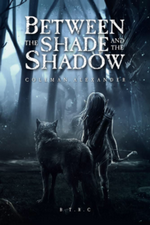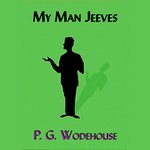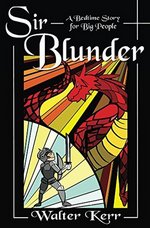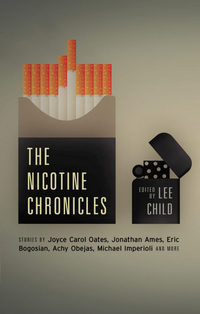 |
The Nicotine Chroniclesedited by Lee Child Paperback, 271 pg. Read: September 26-October 19, 2020 |

I’ve tried to stop smoking.
I know it’s important not to smoke. In fact, it’s stupid to smoke. I smoke, but I try not to smoke. Every time I light a cigarette I think, I should not be doing this.
I want a better life. But it’s an uphill battle, it is an uphill battle because I try to do the right thing, but I don’t do the right thing. And…I smoke anyway.
Fuck it, I don’t smoke that much. The chances that something really bad will happen to me as a consequence of my smoking habit are slim. In fact, the chances that something else might happen to me for other reasons are far greater. Something will happen to me, though.
Sooner or later. That’s guaranteed.
What’s The Nicotine Chronicles
This is an anthology of stories centered around nicotine—users, their delivery system of choice, and how it shapes their thinking/lives. (you can read an excerpt from Child’s Introduction here to flesh this out a bit). There’s one or two that discuss cigars, vaping only shows up once, the rest of these focus on cigarettes (oh, I can think of one mention of a pipe, too). If you care about things like that.
Some of these sixteen stories would fit under the “Crime Fiction” umbrella, one is sort of speculative fiction, and the rest would be “General Fiction.” Not all wax rhapsodically about nicotine or tobacco—in fact, it’s usually portrayed as a pretty negative habit/substance—actually, I think it’s a positive thing only once (and not directly). So even non-/anti-smokers can read this without having to put up with a celebration of smoking or anything.
The Names I Knew
On the whole, these authors were new to me, with four exceptions.
So, I knew Eric Bogosian from miscellaneous roles, and I wasn’t surprised to see that he writes a little. His essay/monologue/first-person rant, “Smoking Jesus,” starts with the paragraphs I started this post with. It’s the best thing in this collection. Sadly, it’s only 4 pages of it. That just isn’t right.
I was surprised to see that Michael Imperioli writes, but I’m glad he does. His contribution was one of the better and more imaginative pieces.
Lee Child and Joyce Carol Oates, are names, of course, that I recognized because I’ve walked into a bookstore/library at least once in the last twenty years. Child’s story wasn’t the kind of thing that fans would expect, but was pretty decent. I appreciated what Oates was doing, but it felt a little…obvious? Unnecessary? Clichéd?
The Names that were New to Me
That leaves 12 names I’m pretty sure I’ve never run across before. None of them moved me to seek out other work of theirs, but there were only two that I actively disliked. I’d be open to reading things from all of them were I to stumble across them.
So, what did I think about The Nicotine Chronicles?
I craved a cigarette right then like I was missing not some foreign chemical but a part of my own, soul, and from each cell of my throat and my lungs, I thanked the universe that I had one.
Every story was well-written, well-executed. I’m not going to complain about the technical aspects—top-notch work, really. But the overwhelming majority of these left me cold. And even with the ones I felt most positive about I could only muster mild interest over.
I have no real animus about this, but no real reason to recommend it. It’s just something I read.

![]()





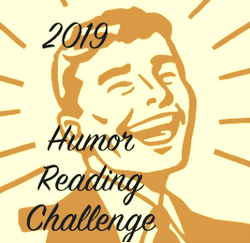
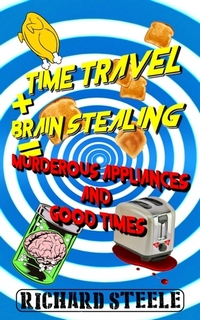










 Read a memoir or biography of a musician you like.
Read a memoir or biography of a musician you like.
